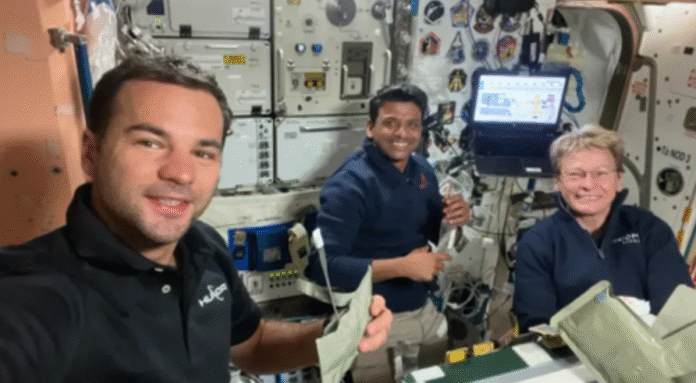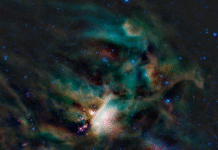New Delhi– Shubhanshu Shukla, the first Indian astronaut to reach the International Space Station (ISS), is now pioneering the development of a brain-computer interface (BCI) in space, NASA announced on Thursday.
As part of the Axiom Space Mission 4 (Ax-4), Shukla is collaborating with Polish astronaut Sławosz Uznański-Wiśniewski in the European Space Agency’s Columbus laboratory module to study how near-infrared technology can be used to monitor brain activity in microgravity.
“Ax-4 crewmates Shubhanshu Shukla and Sławosz Uznański-Wiśniewski partnered together in Columbus and studied using near-infrared technology to record brain activity for constructing brain-computer interfaces,” NASA noted in a blog post.
During the experiment, Uznański-Wiśniewski wore a specialized cap that recorded his brain signals via Bluetooth to a laptop, while Shukla optimized the signal quality and calibrated the system. The goal: to explore how astronauts can use thought alone to control or communicate with computers in the weightless environment of space.
The project, titled “Thoughts over Gravity” (PhotonGrav), is designed to validate the use of functional near-infrared spectroscopy (fNIRS) for developing BCIs that work effectively in orbit.
Shukla’s research goes far beyond neuroscience. Earlier in the mission, he conducted biological experiments in the Destiny lab module, examining tardigrades—tiny aquatic animals known for surviving extreme conditions, including microgravity. He deployed sample bags and captured images of algae strains aboard the ISS.
In another experiment, Shukla studied muscle cell stem cultures under a microscope to better understand the muscle repair process in the absence of gravity.
The Indian Air Force Group Captain has also recorded an educational video for students explaining how the human digestive system adapts to life in space. On Friday evening, he is expected to interact with students and scientists from the Indian Space Research Organisation (ISRO) via ham radio.
Born in Lucknow, Shukla is on a 14-day scientific mission aboard the ISS, accompanied by three fellow astronauts from the U.S., Poland, and Hungary. The Ax-4 mission will conduct about 60 scientific and commercial experiments, representing 31 countries, including India, the United States, Poland, Hungary, Saudi Arabia, Brazil, Nigeria, the UAE, and several European nations.
India, through ISRO, has contributed seven carefully selected experiments to this landmark mission. (Source: IANS)













